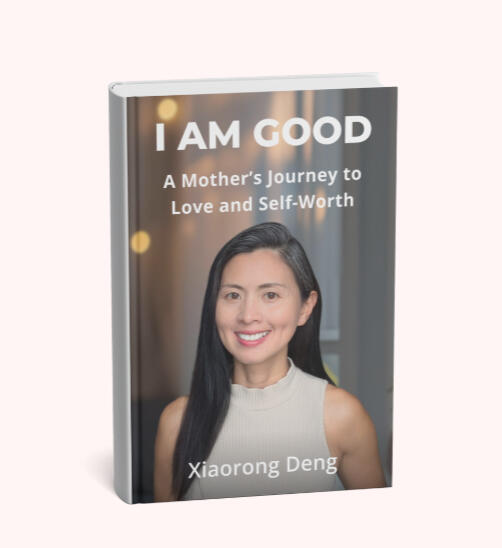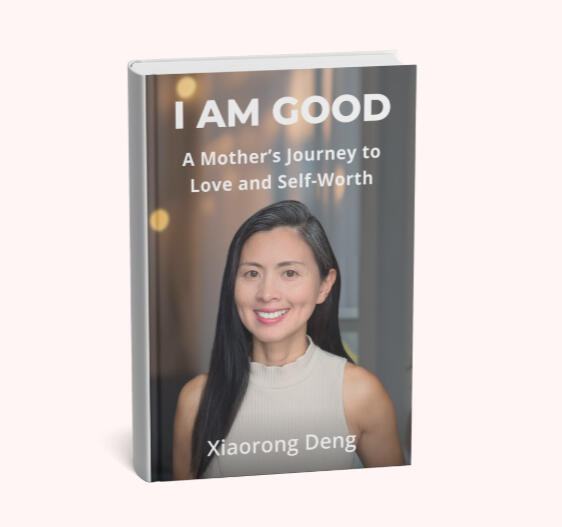I AM GOOD

It was her choice.
But this is mine.
A mother’s path from generational trauma to radical self-worth. I AM GOOD is a memoir about breaking cycles, finding your voice, and finally coming home to yourself.
Chapter 1: The Poison Carried
Tellus
My mother killed herself with a bottle of pesticide. It would take me nearly three decades to understand that I wasn’t the poison.I was seven. Late summer—or was it early autumn?—the potato fields stretched endlessly, a rippling sea of green, their leaves whispering secrets as we children wove between them. Our laughter floated into the golden air, light as dandelion fluff—until, without warning, the world fractured into a grainy, soundless film.Someone—an uncle, an aunt, the memory smudged at the edges—grabbed me, their fingers digging into my arm as they hauled me onto a bicycle. The air was thick with panic, clinging like the damp heat of the season. The ride to the hospital felt like a void—mute and boundless. Trauma, my therapist would later tell me, feasts on the memories we bury alive.But the hospital room remains, etched in acid-sharp detail: the sterile sting of antiseptic, the muffled sobs of relatives curling like smoke in the air, my father’s shattered howls echoing off the stairwell walls. And my mother—her body too still beneath the oxygen mask, the machine’s rhythmic hiss underscoring how her breath had faded to nearly nothing.
Something settled on my chest, so heavy I couldn’t breathe.Seven-year-old hands aren’t made to carry that kind of weight.“Her consciousness was long gone.” My older brother murmured this to me decades later, when we finally dared to brush fingertips against the past.My mother, Yuqiong, was born in the early 1960s. Her name meant jade—a stone of beauty and purity. She lived up to it, a kind-hearted and gentle soul, beloved by everyone in her village. But life had not been kind to her. She was illiterate, having attended school for only a few days as a child before a scalp fungus forced her to stay home. The other children mocked her—their cruel laughter cut deep, and the shame and isolation must have been unbearable. She never returned to school, instead staying close to her mother, my Waipo, with whom she shared an unbreakable bond. In her early twenties, she married my father and gave birth to two children—my older brother and me.“You look just like her,” the villagers would say.I’d inherited her face, her uneven brows, the way her smile tilted just slightly to the right. But no one warned me I’d inherit her ghosts too—that motherhood would one day pull me into the same dark water where she’d once drowned.Since seven, I carried the load unconsciously: a stone in my belly, a shadow in my footsteps. Had I done something to push her toward that choice? Could I have stopped her?All I felt was that she left without any warning.And I was left behind.I was abandoned.
* * *
My father remarried a year later.
I still remember every detail of the first time I met the woman I’d come to call Mom—my stepmom.
I was eight, standing outside a cinema in wrinkled clothes—in the small town where my father worked as an accountant. That day, he led me to a stranger: a woman with carefully braided hair and a floral blouse, her smile like a summer breeze. I adored her instantly. She leaned down, fixed my twisted leggings, her words gentle as honey. I wanted to bask in her glow forever—until my father sent me away so they could enter the cinema alone.
Little did I know how quickly I’d fall in love with her—or how quickly that love would sour.
A few months later, she married my father with nothing more than a few suitcases and a six-month-old baby from her first marriage. Second marriages weren’t grand affairs back then, so we held only a close family gathering.
She was like springtime blooms after a long winter. Then winter returned—not with snow, but with the frostbite of my craving for her affection.
I was over the moon whenever my father wasn’t home because I could sleep in the king-sized bed with my mom—even if I wasn’t allowed to share her side. She and my baby brother slept at the head of the bed, while I curled up at the foot. It was winter, and heat was scarce in those days. I clung to her feet, hugging them like a priceless treasure, soaking in their warmth until I drifted off.
The next thing I remember was a sharp kick landing squarely on my face.
“Leave my feet.”
I was wide awake—not from the pain, but from the piercing realization: I wasn’t wanted.
Coldness seeped into my bones—an ice no child’s body should ever feel. I wanted to hold onto something, anything, but there was only air—thick, suffocating, and so, so cold.
A hole inside me grew.
* * *
The last words my father ever said to me still ache in my chest. He wasn’t harsh or cruel—just sad. And I had let him down.I was twenty-eight. He had fought leukemia for over a year, though I hadn’t truly counted the days, the chemo rounds, the slow erosion of him. I’d been too absorbed in my own struggles in New Zealand, too consumed to measure his suffering. Naïve, I’d clung to the lie that he would survive—especially after the marrow transplant seemed a success.Ten days before he died, he was discharged from the hospital. That weekend, my brother’s family gathered at my parents’ apartment. Over the pixelated video call, everyone seemed… normal. My father, though thin, was smiling. Talking.I assumed he was recovering. I didn’t know that time had already run out.The last time we spoke, I sat in Tim’s living room in Christchurch—evening for me, morning in Chongqing. My mom was out. Alone on the couch, my father looked like a specter on the screen—his face waxy, eyelids fluttering with the effort of staying open.“Baba?” I forced cheer into my voice, the way you might press a bruise to test the pain. “How are you?”A pause. Then, so quiet I almost missed it: “You can come home when I’m gone.”We are a family that never speaks directly. Since childhood, I’ve been expected to just know—what behavior was appropriate, what actions to take without being asked, how to decipher the meanings behind half-spoken words. And I was terrible at reading hints.Yet that day, my father’s words lodged into my ribs. I didn’t understand them, but my body did. Uneasiness writhed in my gut. He’s just exhausted, I told myself. Let him rest. So I hung up when he insisted, though the knot in my stomach stayed.The next morning, his voice still echoed in my skull. To quiet it, Tim and I hiked through the hills outside the city, our breath fogging the air, thick with the scent of damp soil and decaying leaves. But no crispness could cut through the dread. When we returned, the message waited: Father is dying. Come home.
Guilt struck like a blade.I knew. And I did nothing.The shame was physical—a flame burning my spine.On the empty flight home via Hong Kong, I claimed three seats and sobbed for twelve hours straight. My mind looped: Why didn’t I? What if I? At one point, I pressed my forehead against the cold airplane window, wishing it would shatter, wishing the plane would crash—anything to escape the smothering heaviness of my failure.A month after his diagnosis, post-chemo, the doctors had been optimistic. Or so I’d told myself. My grandmother lived into her eighties—why not him? He’d recover. He’d meet his grandchildren.I scolded myself for my blindness, my cowardice, for stitching hope from survivor stories while my father faded.I was a fool.And I hated myself for it.

It was her choice.
But this is mine.
A mother’s path from generational trauma to radical self-worth. I AM GOOD is a memoir about breaking cycles, finding your voice, and finally coming home to yourself.
© Untitled. All rights reserved.